Owners will do just about anything to ensure their pet remains healthy and happy. And this occasionally includes seeking out non-traditional treatments, like acupuncture.
But before you sign your poodle up for a pin-cushion session, it’s important to research canine acupuncture first.
We’ll get you up to date on the latest research below as we examine canine acupuncture, explain the basics of the treatment process, and review the empirical evidence available.
Read on to learn more!
Canine Acupuncture: Key Takeaways
- Some owners have begun scheduling canine acupuncture sessions for their dog. While the practice obviously has to be tailored to four-footers, it relies on the same principles that human acupuncture does.
- Despite the fact that there is relatively little empirical evidence supporting the use of canine acupuncture, it seems to be a relatively low-risk practice. So, it shouldn’t hurt your do, and you may want to try it out as long as you’re not doing so as an alternative to a proven medical treatment.
- As when considering any other non-traditional treatment, consult with your vet before engaging in pet acupuncture. Some non-traditional treatments are essentially harmless, but others may be a bad idea for your specific pooch.
What Is Acupuncture?
Acupuncture is a centuries-old technique that originated in China. It involves inserting small needles into specific points along the body to produce a healing effect or even prevent certain disorders.
The conceptual framework of acupuncture is relatively complicated, but it is rooted in the concepts of qi (pronounced “chee”) and meridians. Qi refers to something known as “life energy,” and meridians are the pathways by which qi purportedly travels.
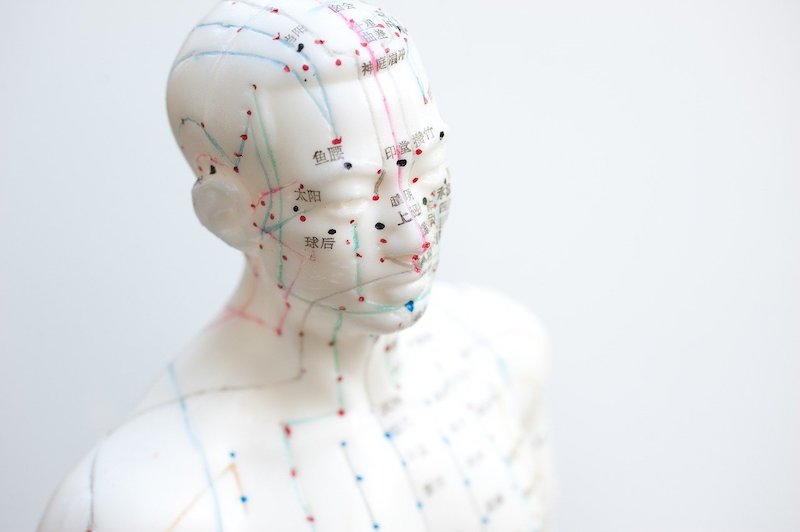
The needles inserted into a patient’s body are thought to alter or manipulate the way qi flows, which in turn eases troubling symptoms or improves the patient’s health. At least, that’s what proponents believe happens.
Scientists have obviously never been able to verify the existence of qi or meridians. Many modern acupuncturists have abandoned these principles, but some continue to embrace these concepts.
Some modern scientists, doctors, and acupuncturists believe that acupuncture works by stimulating nerves, muscles, and connective tissues throughout the body. Others believe the practice triggers the release of naturally occurring pain-killers in the body.
But, while both of these purported explanations are at least somewhat rooted in science, there remains little (if any) evidence supporting these claims.
Accordingly, if acupuncture does work, the “how” and “why” of it all remain unclear.
In the modern world, acupuncture remains popular in China and many other countries. It isn’t embraced as thoroughly in the western world, but Americans, Canadians, and Europeans interested in the practice rarely have trouble finding acupuncturists in their area.
Acupuncture and Dogs
While acupuncture was originally developed as a treatment for human patients, some acupuncturists have begun treating dogs (and other animals) too.
Acupuncturists who treat dogs typically embrace the same conceptual framework as those who apply acupuncture techniques to humans.
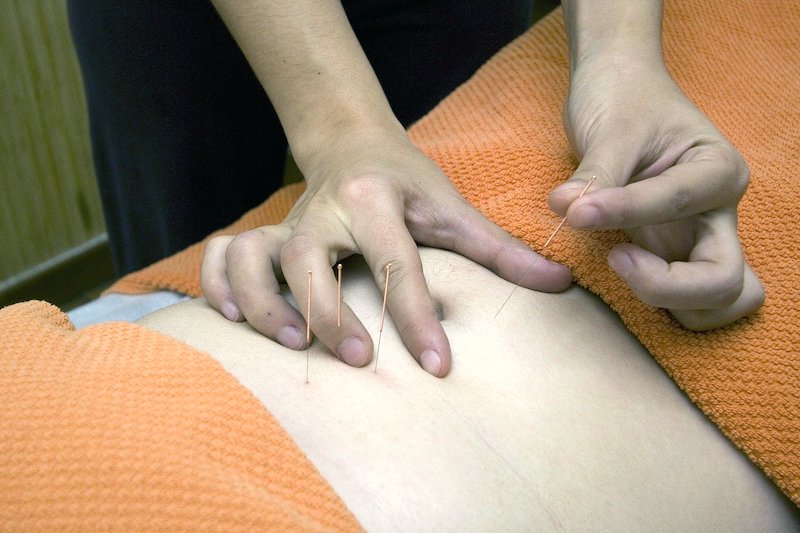
And in most ways, sessions unfold in the same basic manner: Small needles are inserted into the skin at specific points to alter or manipulate the flow of qi through the animal’s body.
As with human acupuncture, there is no empirical evidence that verifies the existence of qi or meridians in canines (or any other animal).
Discussion of the mechanism by which it may or may not work aside, there is mixed evidence regarding whether or not acupuncture works for animals at all — just like in people.
Some pet owners have found acupuncture helpful for their four-footers, while others did not notice any improvements in their pet’s health or well being. Regardless of the results obtained, it appears that an increasing number of owners are considering acupuncture for their dog.
But before you start taking your dog to your local acupuncturist, it is essential that you examine the scientific information available about the practice. You’ll also want to speak with your vet about acupuncture too.
Does Acupuncture Work for Dogs?
There is some evidence that acupuncture works for dogs.
For example, a 1986 literature review published in Seminars in Veterinary Medicine and Surgery looked at several studies on the use of acupuncture in animals in an attempt to draw substantial conclusions for the current research. Most of the conditions indicated in the study involved bones, joints, or circulation.
This review did conclude that acupuncture was useful for certain conditions, like intervertebral disk disease and degenerative joint disease.
However, this study also pointed out that the “published reports are few” and asked for more research in the matter to be completed.
Another review — this time conducted in 2001 and published in the Journal of Veterinary Medical Science — took a look at acupuncture treatments for a wide range of animals.
The researchers included a long list of diseases and disorders that acupuncture may be able to treat in their study. Many of these include disorders involving the bones, joints, and circulation as well.
In this case, the study’s authors concluded that:
By integrating AP (acupuncture) treatment into their clinical practice, they (veterinarians) can often obtain successful results.
So, there is at least some evidence that seems to support the use of acupuncture in animals.
But other reviews have reached different conclusions.
For example, a 2006 study published in the Journal of Veterinary Internal Medicine found that there was not enough evidence to state whether acupuncture for animals was effective or not.
Ultimately, the researchers concluded that:
There is no compelling evidence to recommend or reject acupuncture for any condition in domestic animals.
But they did find that some evidence was promising enough to encourage future studies.
Why Isn’t There More Research About Animal Acupuncture?
Part of the problem with acupuncture is the lack of empirical research available on the subject. There are many reasons why this is the case, but one of the primary reasons is because acupuncture is challenging to study.
A few of the challenges researchers face include:
- It is hard to find someone qualified enough to perform acupuncture for dogs, especially in the western part of the world. However, acupuncture is growing in popularity, so this shouldn’t be as much of an obstacle in the coming years.
- You can’t ask a dog how it feels; you have to rely on interpretations from owners and veterinarians. And it is important to note that — while dogs aren’t susceptible to the placebo effect — owners and vets certainly are.
- It is challenging to design an experimental protocol as well. What control group do you use when studying acupuncture? It is generally unethical to ask someone to stick dogs with needles in the incorrect locations. But, without a control group, it is impossible to draw definitive conclusions.
It’s also important to note that many western doctors and vets remain skeptical of and disinterested in acupuncture in general.
Hopefully, scientists will figure out some workarounds for these issues, thereby enabling and encouraging more research. Until then, owners must simply consider the evidence that is available and try to make the best possible decision about acupuncture on behalf of their pets.
Is Acupuncture Painful for Dogs? Is It Safe?
Efficacy aside, it’s important to consider how acupuncture affects dogs. For example, we should consider whether acupuncture is painful, unpleasant, or dangerous for our four-footers.
This somewhat depends on the size of your dog. Different sized dogs require different size needles.
Tiny dogs receive acupuncture with tiny needles. Insertion should be virtually painless. Conversely, larger dogs require larger needles, so they may experience slight pain as the needles enter the skin.
However, acupuncturists contend that all needles will be painless once they are in place. Some animals even fall asleep during the procedure!
Dogs may, however, experience some sensation from the needles once they’re in place. These sensations are likely similar to what people undergoing acupuncture often describe as tingles and numbness.
However, we can’t ask a dog what he is feeling (well, we can, but we shouldn’t expect an answer), so we don’t precisely know the sensation.
Nevertheless, acupuncture is generally considered one of the safer non-traditional treatments when it is administered by a trained professional.
However, that doesn’t mean side effects never happen.
Once again, we have little information directly related to acupuncture in dogs, but a 2012 review published in The International Journal of Risk and Safety in Medicine documented serious side effects ranging from collapsed lungs to loss of consciousness in human patients.
Despite the possibility of side effects, the study’s authors concluded that:
The majority (95%) of the incidents were categorised as low or no harm.
Some animals experience a worsening in their condition for a day or two following the treatment before making significant progress. Other animals might be sleepy or lethargic for a day following treatment.

What Conditions Can Dog Acupuncture Treat?
Dog acupuncture has not been empirically proven to treat any condition.
However, some studies have found evidence suggesting that it may be useful for treating certain conditions – usually ailments associated with inflammation and circulation issues.
We’ll examine a few of these situations below.
Joint Inflammation
Joint inflammation can be a symptom of other disorders, or it can be a problem in and of itself. One of the most common disorders associated with joint inflammation is canine arthritis.
Other types of conditions include problems involving tendons or cartilage, the development of bursae, and the build-up of fluid within the joint (which can also be a sign of a deeper problem). Some of these conditions are present at birth, in which others occur with aging or are the result of an injury.
These types of joint issues are some of the most common ailments acupuncture is used to treat.
Overall, the evidence available regarding acupuncture as a treatment for joint inflammation and pain is mixed. However, a 2017 study published in Canine Veterinary Journal concluded that:
Use of acupuncture alone or in combination with analgesics reduced pain and improved quality of life in dogs with neurological and musculoskeletal diseases.
Lick Granulomas
A lick granuloma is also known as an acral lick dermatitis. It is caused when a dog aggressively licks an area of his skin until he causes a sore.
Often, once dogs start licking, it causes inflammation and sometimes infection. This makes the area itchy, which promotes more licking.
Eventually, it becomes a vicious cycle.
The cause of these granulomas can be mental, physical, or both. Often, the dog will be experiencing allergies, joint pain, or some other physical trigger, as well as fear or anxiety. These two factors combine to create the disorder.
Acupuncturists often contend that their techniques are effective for treating these problems too. In fact, a 2001 report authored by Damir Žubčić with the University of Zagreb explained that:
Acupuncture therapy was administered 16 times in all. The lesioned area was overgrown by hair 60 days after the start of the treatment. After one year of clinical follow-up, no further clinical signs were observed.
But there’s an issue with this report: It only examined the use of acupuncture in treating the granuloma of one dog.
We’re certainly happy for this four-footer, but a trial involving a single patient is clearly insufficient for determining the best available treatment for your dog.
Gastrointestinal Problems
Some acupuncturists apply their skills to dogs suffering from gastrointestinal problems — ranging from chronic diarrhea to unexplained abdominal pain.
Because gastrointestinal problems are caused by a wide array of health problems, acupuncture may be helpful for treating some issues, while remaining ineffective for others.
One study — published in a 2018 issue of Journal of Small Animal Practice — tried to examine the efficacy of acupuncture for treating gastrointestinal issues. Notably, in addition to a test group of animals, this study included both a control group (who received no acupuncture) and a “sham” group (who were treated with needles in “incorrect” places).
The researchers couldn’t definitively state that the treatment was effecitve, but they did find that:
Acupuncture targeted at the gastrointestinal tract of dogs was associated briefly with slowed gastric emptying and gastrointestinal transit time.
What to Expect: How Do Canine Acupuncture Sessions Work?
When you take your canine in to get an acupuncture treatment, he will first need a general medical assessment. The acupuncturist will need to fully assess your dog’s medical records to figure out the best treatment.
You will probably discuss different treatment options, as well.
Many dogs will be a bit nervous when entering the office for the first time. However, most dogs feel very relaxed after the doctor begins inserting needles.
The length of each session depends on your dog’s condition. Most sessions are about 30 minutes long, but this varies widely.
The doctor will likely outline the treatment protocol, which will usually involve multiple sessions. Some acute conditions may be treated in one session. However, the more severe or chronic your dog’s condition is, the more sessions your pet will probably need.
No matter how many sessions your pooch will have, (and assuming your dog is responsive to the technique) there will usually be an improvement within 2 to 4 sessions.
It’s not always easy to find a trained acupuncturist to treat your pet. Fortunately, the International Veterinary Acupuncture Society maintains a list of practitioners from all over the world.
Just remember to consult your traditional veterinarian first and keep him or her in the loop as you go!
Canine Acupuncture FAQs
Given the slightly mysterious nature of acupuncture in dogs, many owners have questions about the practice. We’ll try to answer a few of the most common questions owners have below.
Does acupuncture for dogs really work?
Unfortunately, there is no clear answer as the research into canine acupuncture is still relatively limited. It definitely appears as though it may work, but only time and further research will answer this question definitively.
How long does it take for acupuncture to work in dogs?
If canine acupuncture is going to generate results for your dog, it appears that it will usually require two to four treatments for your dog to enjoy any benefit. However, there are a few cases in which the results appear to occur almost immediately.
How expensive is acupuncture for dogs?
As with most other canine services, the costs associated with dog acupuncture vary pretty widely. Your location, your dog’s size and health, and the number of treatments he’ll need will all play a part in the costs. Additionally, different practitioners charge different rates. Some charge as little as $25 for a session, while others may charge 10 times this much.
How often should a dog have acupuncture?
The best schedule and treatment duration will vary from one case to the next, depending on your dog’s health and the treatment goals. You’ll simply need to consult with your acupuncturist and vet to determine how often you’ll need to bring your dog in.
Is acupuncture ever bad for dogs?
Despite the lack of available evidence, canine acupuncture is largely considered safe. However, negative side effects — including some as serious as loss of consciousness and lung collapse — have occurred in human patients. Accordingly, caution is still warranted and you should take the decision to initiate acupuncture treatment seriously.
How does acupuncture work for dogs?
Nobody knows for certain if acupuncture does work for dogs, let alone the method by which it may work. Traditional practitioners typically point to the manipulation of a dog’s qi (“life force”), while science-based practitioners suggest it may stimulate nerves or the release of naturally occurring pain killers.
What are the side-effects of canine acupuncture?
Side-effects are typically considered somewhat rare and usually involve things like sedation. However, some dogs may experience a temporary worsening of symptoms, and serious side-effects have been noted in humans.
Do dogs ever get worse after acupuncture?
As mentioned, a small percentage of dogs appear to experience a temporary worsening of symptoms immediately following treatment sessions. This also occurs in some humans.
Does dog acupuncture work for arthritis?
Although it still isn’t clear that acupuncture helps treat any ailment, it seems most likely that joint problems — such as arthritis — are some of the issues acupuncture is most likely to alleviate.
Does dog acupuncture work for treating anxiety?
There is less evidence available for acupuncture treating anxiety than things like joint problems. There are many anecdotes and owner accounts published on the web, but there haven’t been any large-scale studies of acupuncture as an anxiety treatment that we’re aware of.
Does canine acupuncture work for neurological problems?
Once again, the efficacy of canine acupuncture remains unclear. However, a 2017 study published in the Canadian Veterinary Journal found that acupuncture was more effective at treating musculoskeletal problems than neurological disorders.
Conclusion: Talk with Your Vet About Canine Acupuncture
While we don’t know if dog acupuncture is useful, there is some promising research that has pointed to some benefits.
Furthermore, acupuncture doesn’t appear to be dangerous or painful in most cases, so there are no reasons not to try it as long as your vet is comfortable with you doing so. The same is true for some other alternative treatments like dog reiki – so long as it’s safe and won’t cause your dog discomfort, it’s likely OK to at least try.
However, it’s important that you don’t turn to acupuncture in lieu of a proven veterinary treatment. Thankfully, it appears that acupuncture will usually work alongside traditional medicine or treatments your vet may recommend.
As always, talk to your vet about the possibility of using acupuncture to help your dog.
***
Have you ever taken your dog to see an acupuncturist? We’d love to hear about your experiences! Let us know in the comments below!
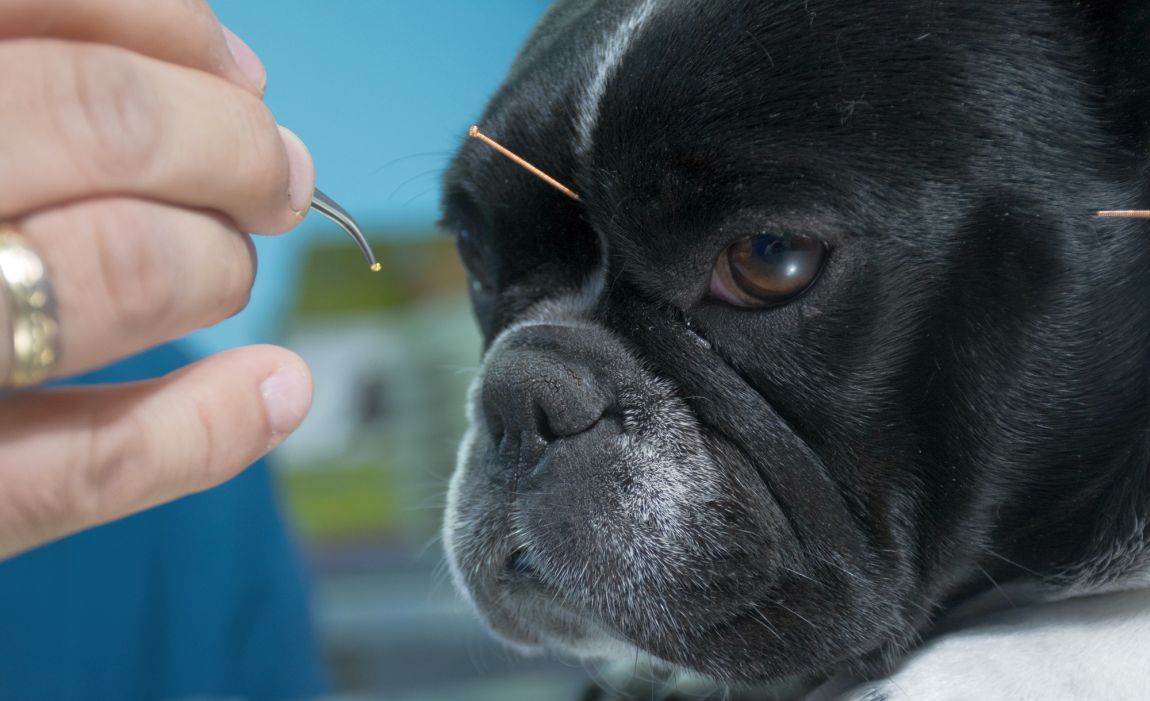

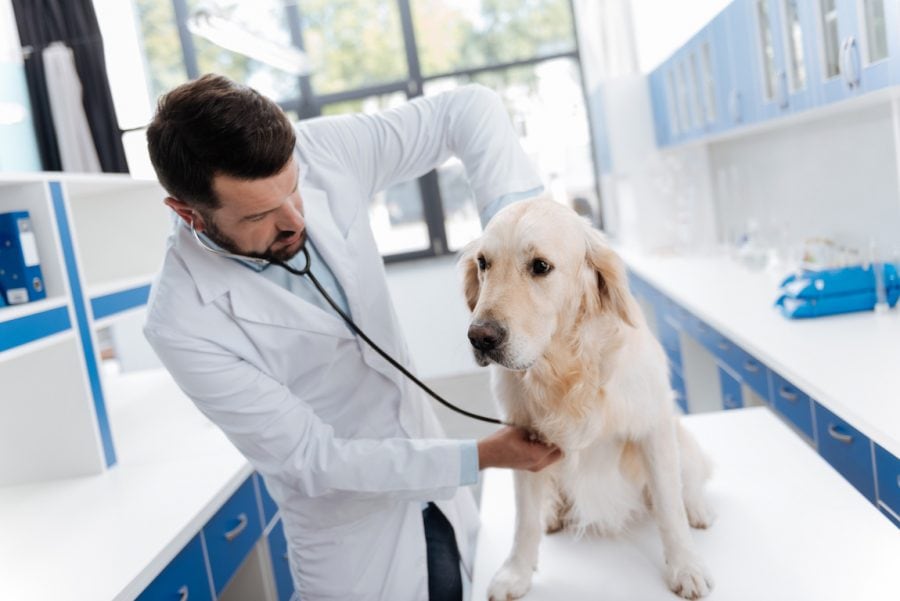


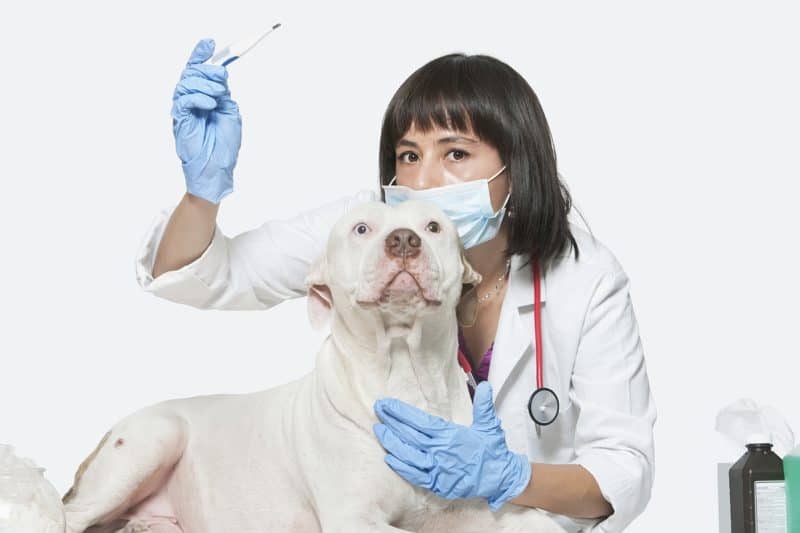

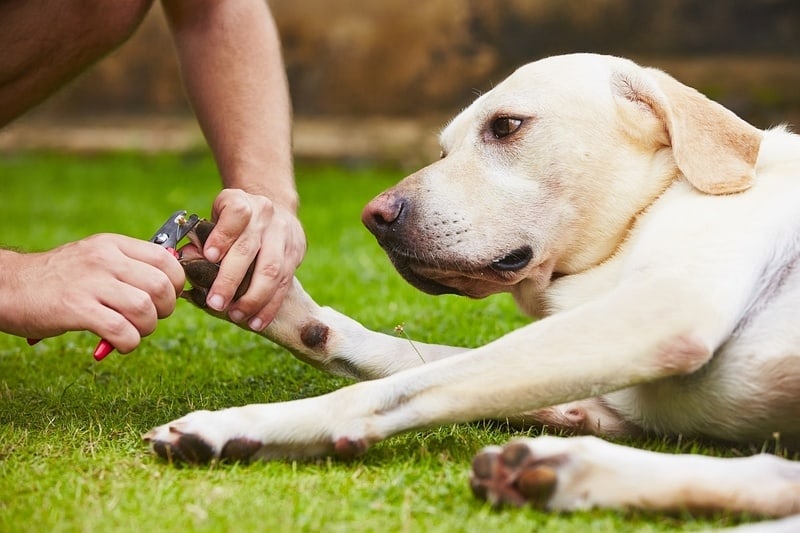





Leave a Comment